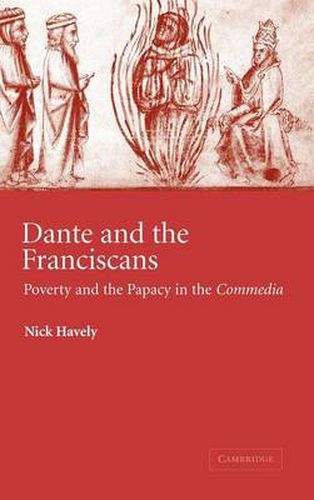Readings Newsletter
Become a Readings Member to make your shopping experience even easier.
Sign in or sign up for free!
You’re not far away from qualifying for FREE standard shipping within Australia
You’ve qualified for FREE standard shipping within Australia
The cart is loading…






Nicholas Havely examines the connections between Dante, the Franciscans and the Papacy as they appear in the Commedia, and presents the poem as one concerned with an often dramatic confrontation between authority and idealism in the church. Havely draws on a wide range of literary, historical and art historical sources relating to the controversy about Franciscan poverty during the late thirteenth and early fourteenth centuries. He argues that the Spiritual Franciscans’ strict interpretations of evangelical poverty provided the poet with a means of addressing the state of the contemporary Papacy and of imagining the renewal of the church. He also explores the origins and afterlife of the debate about this form of poverty and Dante’s contribution to it. This study will appeal to scholars interested in medieval religious and intellectual history, as well as to readers of Dante’s poem and other medieval visionary and political writing.
$9.00 standard shipping within Australia
FREE standard shipping within Australia for orders over $100.00
Express & International shipping calculated at checkout
Nicholas Havely examines the connections between Dante, the Franciscans and the Papacy as they appear in the Commedia, and presents the poem as one concerned with an often dramatic confrontation between authority and idealism in the church. Havely draws on a wide range of literary, historical and art historical sources relating to the controversy about Franciscan poverty during the late thirteenth and early fourteenth centuries. He argues that the Spiritual Franciscans’ strict interpretations of evangelical poverty provided the poet with a means of addressing the state of the contemporary Papacy and of imagining the renewal of the church. He also explores the origins and afterlife of the debate about this form of poverty and Dante’s contribution to it. This study will appeal to scholars interested in medieval religious and intellectual history, as well as to readers of Dante’s poem and other medieval visionary and political writing.